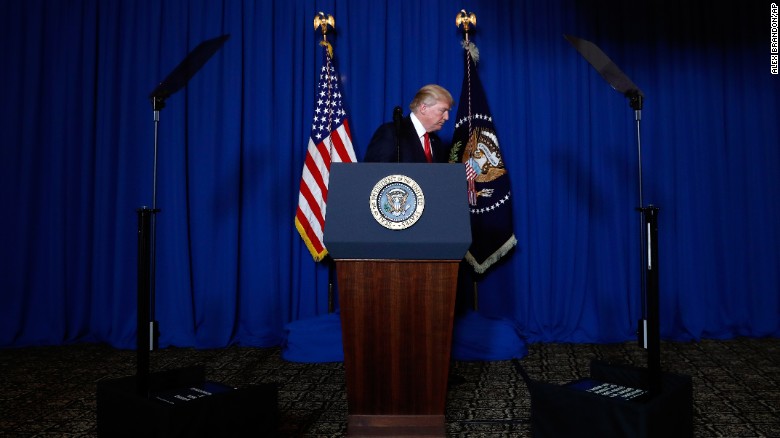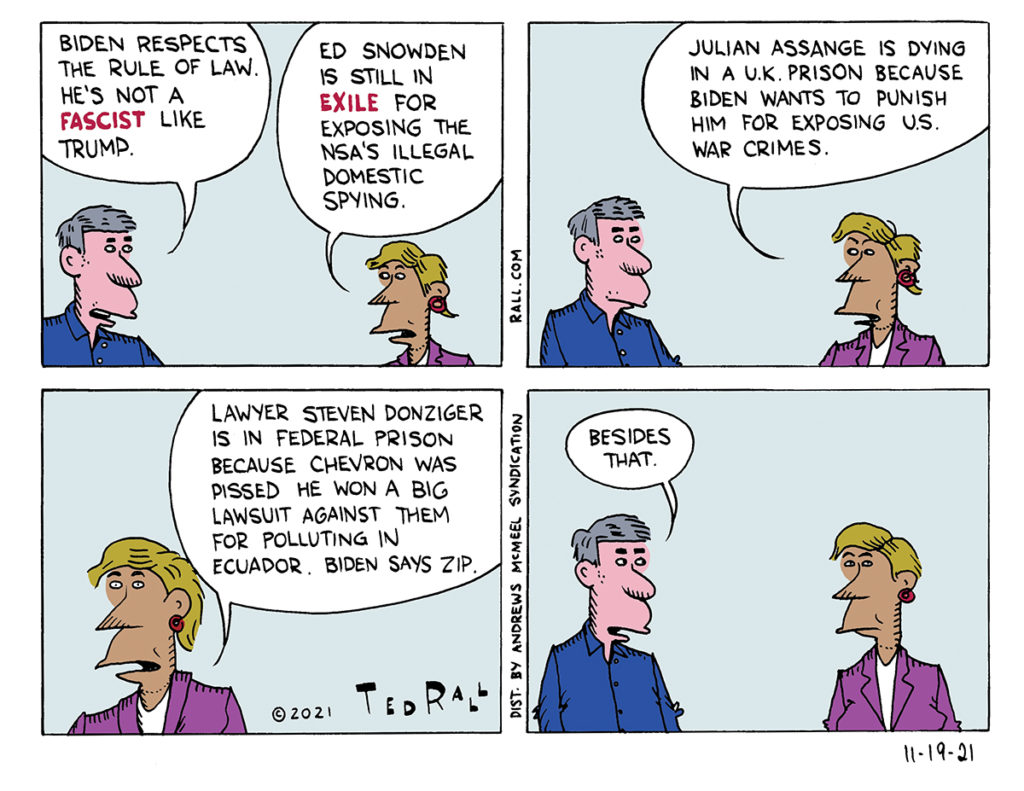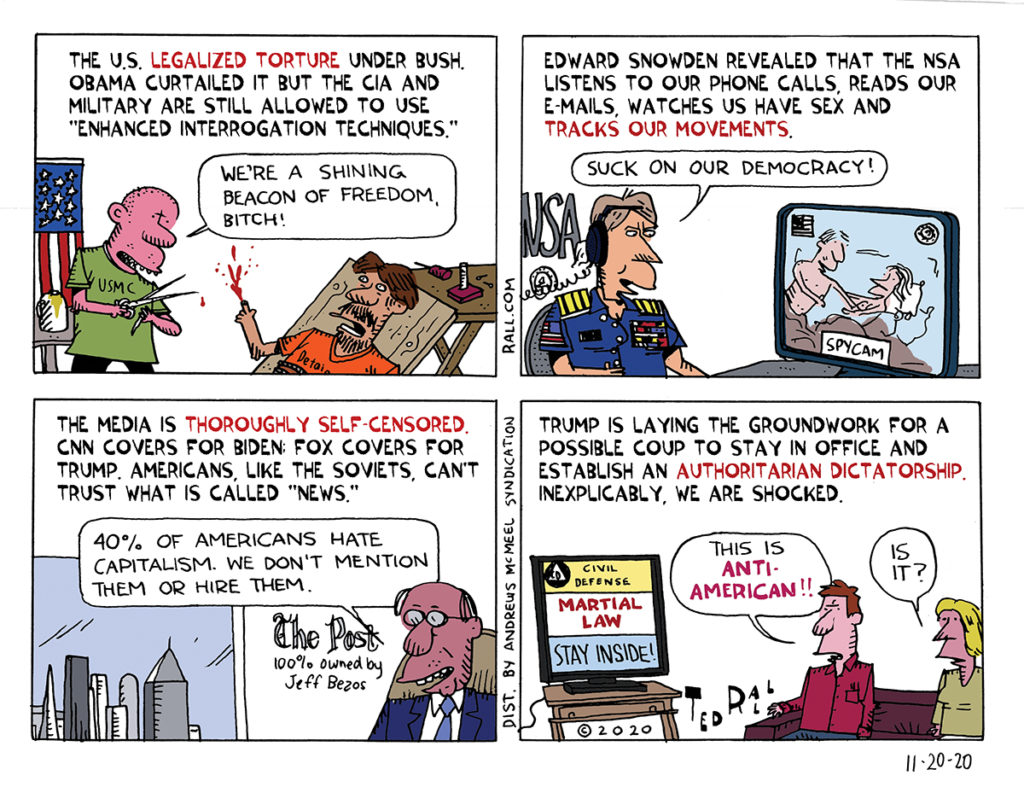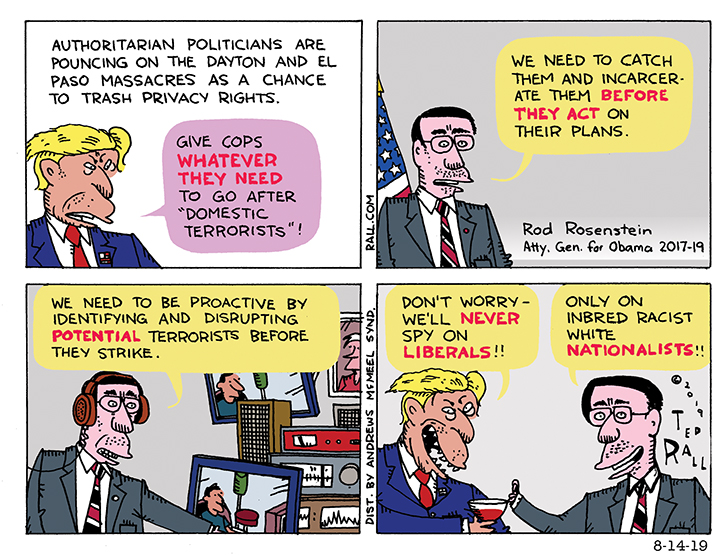Western athletes attending the World Cup in Qatar are trying to send critical political messages to the local authorities. It might seem cute but it’s also rude. If you can’t stand the politics of another country, it might be best not to visit.
Make Text Messages Private

Nearly a decade ago, the Edward Snowden revelations prompted a national debate about data security. Polls show that a growing number of Americans take data-security precautions like choosing different passwords for online accounts and using encrypted communications platforms like Signal. Eight out of 10 people believe companies should be required to obtain direct consent to collect or sell their data.
But there still hasn’t been any meaningful discussion about data privacy. Text messages, particularly one-on-one exchanges as opposed to group chats, feel as intimate as whispers across your pillow. Do you expect your text messages to remain private? I bet you do. Most people do. Why am I so sure? Because so many people mouth off in text messages that get them into trouble.
The law, on the other hand, does not codify the reasonable expectation of privacy to the dispenser of digital diarrhea. Either the sender or the recipient of an SMS may publish it anywhere she likes, including a public forum like social media. And that’s scary. If you’re honest with yourself, there’s probably at least one text in your history that you hope never sees the light of day.
In a high-functioning society, laws and social mores are aligned. It is time to close the yawning gap between our privacy-be-damned laws and Americans who behave, and obviously believe, as though their texts were as private as a verbal chat between friends or lovers.
Crystal Clanton provides a high-profile case in point. Six years ago in late 2015 she was a 20-year-old college senior and an employee of Turning Point USA, an organization that promotes conservative politics on college campuses. According to Jane Mayer at The New Yorker Clanton sent a text message to a fellow Turning Point employee, John Ryan O’Rourke, while the two of them were attending a conference in D.C. “I HATE BLACK PEOPLE” “Like f— them all,” Mayer reported that Clanton wrote, with the expletive spelled out. The context of the leaked conversation suggests that she was reacting to some sort of run-in on the street or in a store.
Clanton was fired by Turning Point after Mayer’s piece about the incident was published in 2017. Now The Washington Post is reporting that Clanton, “a student at the Antonin Scalia Law School at George Mason University, [has been] selected for a coveted clerkship with William H. Pryor Jr., the chief judge of the U.S. Court of Appeals for the 11th Circuit” and “appears well on her way to the ultimate credential for a young lawyer, a Supreme Court clerkship.”
Clanton questioned the authenticity of the dialogue, pointing out — reasonably, in my view — that an easily-manipulated digital screenshot proves nothing. The Post ridiculed that defense and criticized such well-connected Washingtonians as Supreme Court Justice Clarence Thomas for supporting her.
Setting aside issues of evidence, racism and whether one ought to be subjected to career cancellation over a years-old rant, let’s assume that Clanton actually texted those toxic words. Obviously Clanton never assumed that her texts might someday be made public, much less reprinted in a major magazine and discussed in the pages of one of the most prestigious newspapers in the United States. If her smartphone warned before hitting the “send” paper-airplane icon — “You are about to send a public message. Privacy not guaranteed. Are you sure you want to send?”—she might have thought twice. But smartphones are engineered for impulsivity, not second thoughts.
Clanton has company. Police officers in California, North Carolina, and Texas have been fired and/or prosecuted for sending racist texts. An Alabama sorority ousted its chapter president for texting that Black students smelled bad. A quarterback for the Buffalo Bills had to apologize for texting “guns are good” followed by “Just make them very expensive so only elite white people can get them haha.” The term “elite white people” triggered outrage. Elizabeth Holmes, founder of Theranos, was hung on the petard of her texts to former Theranos President and COO Sunny Balwani.
Particularly in the case of the police, people shouldn’t think such things, much less say them. But that’s not the point. Point is, Holmes assumed that her “on route to dentist my king” was private, just between her and Balwani. We don’t live in a surveillance state like East Germany under the Stasi because Americans intuitively understand that having the right to say stupid, insensitive, unpatriotic, even bigoted garbage behind closed doors, in private, with your confidantes—to make mistakes, to be a jerk, to blow off steam, to try scummy name-calling on for size—is an essential part of freedom of speech.
Congress ought to pass a law guaranteeing the confidentiality of text messages unless both parties waive their privacy rights or the communications are relevant to a criminal investigation or lawsuit, in which case they would be subject to subpoena.
Such a reform would not represent a major expansion of privacy rights under American law. If I send you an old-fashioned letter by snail mail, you own the physical letter but I own the copyright of its contents. As per the 1986 case Salinger v. Random House in which the reclusive author sued a biographer to avoid the publication of his personal letters, you might be able to reproduce a small excerpt in your no-doubt incredibly-flattering biography of yours truly. But you will need my express written permission in order to publish my letter in its entirety, or after I die that of my estate. There are exceptions for criminal and civil-court matters such as the use of my letter to defend yourself against any allegations I may have made against you.
A 2010 case, United States v. Warshak, expanded the reasonable expectation of privacy to email communications. Federal law and those of 11 states, including such populous jurisdictions as California and Florida, bans the recording of phone conversations without the consent of the other party.
Unfortunately, the U.S. Supreme Court has not yet weighed in on the issue of privacy expectations concerning Americans’ text messages. And rationality has been in short supply in lower court rulings. “Any purported expectation of privacy in sent text messages of this type is significantly undermined by the ease with which these messages can be shared with others,” Massachusetts Supreme Judicial Court Justice Frank Gaziano wrote last year in a ruling against implied privacy rights for texts. By Gaziano’s reasoning, the ability to photocopy or cut-and-paste should also abolish privacy expectations for letters and emails.
Americans who text only to later find themselves exposed to public ridicule or worse clearly expect their messages to remain private. If their expectation is unreasonable, it’s incumbent upon telecommunications companies to tell their customers that everything they say can and will be used against them in the court of Twitter.
(Ted Rall (Twitter: @tedrall), the political cartoonist, columnist and graphic novelist, co-hosts the weekly DMZ America podcast with conservative fellow cartoonist Scott Stantis. You can support Ted’s hard-hitting political cartoons and columns and see his work first by sponsoring his work on Patreon.)
Billionaires Who Promise to Save Journalism and Then Default: It Ought To Be a Crime.

Let’s talk about fraud: “a person or thing intended to deceive others, typically by unjustifiably claiming or being credited with accomplishments or qualities,” the dictionary calls it.
Let’s also discuss breach of contract. “A breach of contract occurs when the promise of the contract is not kept, because one party has failed to fulfill their agreed-upon obligations, according to the terms of the contract. Breaching can occur when one party fails to deliver in the appropriate time frame, does not meet the terms of the agreement, or fails to perform at all,” says a random legal website I googled. Sounds right.
Pierre Omidyar cofounded eBay. He became a billionaire at age 31 when eBay went public. Forbes says he’s now worth $12.8 billion.
As you know, journalism is in trouble. So it sounded almost too good to be true when Omidyar lured Glenn Greenwald, who famously received the Edward Snowden stash of secret documents that proved the U.S. government is spying on us, away from the UK Guardian in order to helm a new, fearless, left-leaning journalism organization by the name of First Look Media.
Best of all, Omidyar promised to fix the biggest problem faced by 21st century journalists: shrinking budgets. First Look Media, Omidyar said, would get a whopping $250 million in order to support “independent journalists in a way that leverages their work to the greatest extent possible, all in support of the public interest.”
Geld macht frei.
Watch this crazy announcement video from 2013. No, really, watch.
First Look Media, Omidyar promises in his video, would feature a “flagship” online magazine—The Intercept, edited by Greenwald—that would “cover news and stories from entertainment and sports to politics and business.” In addition, he pledged, there would be “a family of digital magazines.” (Spoiler: the sports, business and entertainment stuff never materialized.)
One of First Look’s “verticals,” in publishing vernacular, was to be called Racket, “a hard-hitting, satirical magazine in the style of the old Spy” to be edited by Matt Taibbi of Rolling Stone. (Disclosure: I met with Taibbi to discuss the possibility of working for him. Another disclosure: I talked to a reporter at The Intercept about covering my lawsuit against the Los Angeles Times. He was excited but went cold after he pitched it to his editors.)
According to Taibbi and also Greenwald, Taibbi chafed under Omidyar’s incessant micromanaging on everything from whom he could hire to where they would sit. Taibbi quit and returned to Rolling Stone. That was the end of Racket.
Then the fickle billionaire pulled the plug on his other playthings. “Omidyar made clear that there were no plans to launch any more digital magazines in the near term,” Greenwald wrote in 2014. First Look did pick up the cartoon site The Nib in 2016 and added the nonfiction storytelling publication Topic in 2017, only to cancel both and fire their staffs as part of “cost-cutting moves” in 2019.
Omidyar did not explain why an organization backed by a man worth $12.8 billion needs to cut costs, nor how he reconciles his fickleness with that I’ve-got-your-back video. Really, watch it! (To put this in terms a normal person can understand, if you’re worth $500,000, Omidyar’s $250 million pledge is equivalent to $9,000. If you have $500,000 and you can’t spare $9,000 you’re doing something wrong.)
Earlier this year, Omidyar decided to shut down First Look’s maintenance of the Snowden archive. Given that that trove was the company’s original raison d’être, alongside its dedication to investigative journalism, it left loyalists like First Look cofounder Laura Poitras scratching their heads. In March the company laid off its team of researchers.
The point of First Look, remember, was to give good reporters plenty of cash so they could focus on writing and research.
According to Columbia Journalism Review Omidyar has made good on just $90 million of his $250 million commitment. Which is still a lot of money, but it won’t last forever when you’re burning up cash paying exorbitant wages to editors like Greenwald. He collected $1.6 million between 2014 and 2017 while entry-level grunts are making do with $55,000 in a Manhattan where one-bedroom apartments go for $3,500 a month.
Left-leaning journalism types have been whispering about the shenanigans at First Look for years. But few are willing to speak out in public. Omidyar is powerful and wealthy. What if you might want to work for him someday?
Billionaires are purchasing social good will in the hope that they will be “credited with the accomplishments or qualities” of contributing to the “public good,” as Omidyar says in his over-the-top video.
And I’m fine with that—as long as they don’t breach their contract with the public. Omidyar promised us a passel of verticals/online magazines. Where are they? He promised journalists virtually unlimited freedom to investigate, travel, whatever it takes to do their jobs. Budget cuts and mass layoffs are a clear violation of that pledge. He cheated us. He should be held accountable.
Dr. Pat Soon-Shiong is another billionaire, this one from biotech, who has burnished his image as a savior of American journalism by purchasing The Los Angeles Times, the nation’s fourth-largest newspaper. Soon-Shiong is purportedly worth $7.1 billion.
But there’s already a stink, and I’m not talking about the smell of jet fuel raining down on the Times’ new low-budget office building in El Segundo, directly under the flight approach to LAX. The Times previous home was an art deco gem downtown on Times-Mirror Square. Why, one wonders, can’t a man worth $7.1 billion shell out the $50 million-ish cost of a downtown office building rather than move reporters a three-hour drive away from some parts of the city they’re supposed to be covering? (That’s $3,500 for someone worth $500,000.) Why do so many of his new hires skew so young, Millennial and thus so cheaply five-digit?
Despite slavishly sucking up to him in public statements, the union representing Times employees has been rewarded with contempt by Soon-Shiong, who refuses to negotiate in good faith.
Jeff Bezos, self-proclaimed savior of The Washington Post, has a similar attitude toward workers at his newspaper.
I don’t have a problem with derps derping, even when they’re running major news outlets. What seriously pisses me off is when those derps are billionaires who market themselves as saviors to be admired, when they’re anything but.
(Ted Rall (Twitter: @tedrall), the political cartoonist, columnist and graphic novelist, is the author of “Francis: The People’s Pope.” You can support Ted’s hard-hitting political cartoons and columns and see his work first by sponsoring his work on Patreon.)
Don’t Worry, the Government Will only Use Their New Anti-Mass Shooting to Suppress Us
Right wing politicians are using the latest mass shootings in Dayton and El Paso as an excuse to say that they need the same sweeping rights to invade privacy that they currently use to combat foreign terrorists against potential American domestic terrorist threats. It’s not hard to see how these tools would quickly be used to crack down on any form of dissent.
At Harvard, Thoughtcrime on Crack

Eventually, tech theorist Clay Shirky has argued, so many people will have nude photos on the Internet that there will be no shame in one of them being yours. Privacy will no longer be necessary. It will be a halcyon time for politicians: no matter how much dirt your enemies dig up, none of it will stick because having done bad things and making stupid mistakes will be considered normative.
Eventually isn’t here yet. So in the meantime, people who are either too boring to have done anything wrong or so lucky that they haven’t gotten caught are deploying social media in a vicious online pogrom against those deemed politically incorrect. It’s Orwell meets the Salem witch trials via “The Lord of the Flies,” social justice warrior-style.
Thoughtcrime is already a prosecutable offense. A U.S. federal court has indicted WikiLeaks leader Julian Assange for thinking about, merely for what-if musing in conversation with Army whistleblower Chelsea Manning, about hacking a government computer. The government admits there was never an actual hack. Undercover FBI agents entice young Muslim men into nonexistent terrorist plots in order to entrap them. An Ohio man on probation for possession of child pornography was sentenced to seven years in prison for a handwritten diary he had written for his own use that depicted rape and torture of children—disgusting but purely theoretical.
Coming of age pre-Internet I rest secure in the knowledge that most of my screw-ups and youthful indiscretions remain blissfully undigitized and unsearchable. I was wrong, I did bad things, hopefully I learned and won’t repeat the same ones.
People under age 35 or so don’t have that luxury. As Edward Snowden remarked, “They understand what it means to make a mistake, have someone with a smartphone in the room and then have it haunt you for the rest of your time in high school or college or whatever.”
If and when Shirky’s vision is realized, it won’t matter. Digital evidence of intemperate language and drunk texts and obscene selfies will be so widespread that their revelation will be met with a collective shrug. Until then, we will have cases like that of Kyle Kashuv.
Kashuv, 18, is the right-wing counterpart of David Hogg. Both men survived the mass shooting at the high school in Parkland, Florida and both got into Harvard College. Unlike Hogg, however, Kashuv is a right-winger and speaks at pro-gun rallies. Also unlike Hogg, it has been revealed that Kashuv spewed a bunch of racist and anti-Semitic slurs online when he was 16. After Kashuv issued a series of apologies, Harvard rescinded his acceptance.
Let that sink in: when he was 16.
Kashuv claims to have become “a better person.” Maybe, maybe not. But even if he hasn’t, even if he’s still and really a bigot, how are his private and political thoughts any of Harvard’s business as long as he keeps his racist BS to himself?
Harvard is extremely unforgiving of its prospective freshmen. They previously rescinded admissions from ten kids who shared dirty memes about the college on Facebook, and also famously from a woman who served time in prison for murder, because she didn’t reveal her record on her application. Why should she have to? She did her time. Let her study up and move on.
It is notable that Kashuv apologized at length, eloquently, repeatedly. The only way to fix bad words is with good words and he did that. Was he sincere? Only he knows that; frankly, that should be enough.
The admissions officers are punishing something even more ephemeral than thoughtcrime. Call it post-thoughtcrime.
Harvard is turning this guy away either because they suspect he is insufficiently repentant or, more likely, because they think that what he said two years ago was so awfully distasteful that he deserves to be sanctioned despite and after he recanted, reformed and (claimed to have) stopped being the person who wrote those racist and anti-Semitic comments. Thoughtcrime is sinister and invasive; post-thoughtcrime goes still further because it eliminates even the possibility of redemption.
This, Harvard College is telling the world, is not a young man, a tabla rasa whose future is unwritten. His racist comments at age 16 make him as forever toxic as Chernobyl, a filthy demon worthy only of scorn and contempt. Harvard chooses to believe that he is as he behaved at his worst, two years ago. They choose to ignore him as he claims to be now, better. The evil must be true; the good must be a lie. Apologies are worthless, merely the self-serving rhetoric of the justly condemned villain. There is nothing for Kashuv to do but slink away and die.
Social media comments about Kashuv applaud Harvard’s lack of mercy. It never occurs to the howling mob that someday they or someone they love might need and want some mercy themselves.
Harvard’s attitude is no outlier. It is an interesting iteration of a society that sentences criminals to the longest prison terms in the world—and they’re getting longer. If and when you get out, the system forces you to tell employers that you’re an ex-con—so you can never find a good job. In America all it takes to ruin your life is one bad decision.
Even in “1984” all that Orwell’s totalitarian state required of its citizens was to love Big Brother. Former dissidents cured of their heresies by terror and torture were permitted to live out their lives. The Party didn’t hold the fact they hadn’t always loved Big Brother against them.
(Ted Rall (Twitter: @tedrall), the political cartoonist, columnist and graphic novelist, is the author of “Francis: The People’s Pope.” You can support Ted’s hard-hitting political cartoons and columns and see his work first by sponsoring his work on Patreon.)
SYNDICATED COLUMN: Why is Trump So Hated? It’s the Tribalism, Stupid

This one is in post-9/11 cadence: why do liberals hate Trump so much?
It’s his style.
This being about politics, one would think — would hope — that the president’s atrocious Watergate-level poll numbers were the result of his self-evident idiocy, Muslim-bashing, far-right cabinet and court picks and his policies. Rancid as they are, Trump’s politics don’t seem to be the main reason he riles up so many Democrats.
You pick the Trump outrage that’s got liberals in a tizzy and I’ll point to an equal and not-so-opposite they had no problem with when it was authored by a Democrat.
Trump’s first major policy decision was his ban on travel to the U.S. by the citizens of seven (later revised to six) Muslim countries. Thousands of protesters converged on JFK and other airports. Federal judges across the nation issued emergency stays. Subjecting people to a religious test? Such evil nativism could not stand! Right-wing media pointed out/claimed/stretched that President Obama — who, save for the short-lived Occupy Wall Street protests, suffered few complaints from America’s impotent Left — had thrown a wrench into immigration by Iraqis to the U.S.
False equivalence? Perhaps. It became harder to avoid the stink of progressive hypocrisy when Trump authorized his Department of Homeland Security to deport non-citizens, including green card holders, whom the authorities even suspect of an offense — which could be as trivial as a traffic ticket. Millions of law-abiding Americans — if you’re born in Mexico and came here at age four and never lived outside of America what else are you but American? — were in Trump’s crosshairs. It was racist and nativist and disgusting and why the hell didn’t Democrats take to the streets to call Obama racist and nativist and disgusting when he deported more undocumented workers than any other president in history?
Trump ran as an anti-interventionist. America First! Leave the world to its troubles; the U.S. has too much infrastructure to build and a country to make great again to bother with foreign BS. In a extemporaneous portfolio short on detail and long on invective, isolationism after 15 years of Global War on Terror was a Trump thing most of us ought to have been able to get behind. Now, after three months of beribboned armchair generals whispering belligerent nothings into his ears, Trump has discovered his inner carpet bomber. Syria must be bombed! Well, bombed more.
The U.S. destruction of Syria began under Team Obama-Clinton, of course. Surely even Trump remembers that; he talked about it all last year at his rallies. Hillary told Barry to fund and arm something called the Free Syria Army which no one knew anything about and turned out to be mostly a thing called the Al Nusra Front which is pretty much Al Qaeda and seems to be friends with ISIS now.
Remember all the antiwar rallies in 2012? Remember how Obama got primaried for destroying Libya and Syria? Neither do I. But don’t be surprised if the streets fill with signs opposing Trump’s Syria war — signs that might have made a difference to the hundreds of thousands of Syrians killed by American-made and –funded weapons under Obama.
Bill Clinton’s 1992 campaign mantra was “It’s the economy, stupid.” Now it’s tribalism and it sure is stupid.
There isn’t much ideological distance between neoliberal warmonger Obama and corporatist warmonger Trump. There is, of course, all the difference in the world in their styles.
Obama was a bourgeois liberal Democrat’s sopping wettest dream: affable, professorial, so calm a pundit called him Spock. Whole Foods, Trader Joe’s, Doris Kearns Goodwin! Bet he (or Michelle) owns at least one tote bag from an NPR pledge drive.
Who cared that he called Snowden a traitor and ramped up NSA spying on Americans and kept Gitmo open and kept torture and said it was OK for American cops to use killer drones to kill Americans on American soil? He was a fascist. But he was our fascist. Our fascist with a smile.
Trump frowns. Like Churchill, he thinks.
Their fascist.
Trump, on the other hand, is Republican and crass and loud. He doesn’t know what he’s talking about and he doesn’t care that everyone knows it. He dates and marries trophy ladies. His cabinet picks don’t know significantly less about the world than Obama’s did or Hillary’s would have. The difference between his and his and hers is that Trump’s gang is ugly and brash (Bannon, Flynn) to the Democrats’ Tuesday night kill list pretend seriousness.
Democrats aren’t a party. They’re a sports team.
Not convinced? Consider the Did Russia Install Trump hysteria.
There is, after thousands of articles and scores of hours of Congressional testimony, still not a smidgen of evidence (much less proof) that Russia influenced the election. Yet here you have Democrats — the gang that’s supposed to be into the Truth about climate change and science and all — calling for impeachment. Why this bizarre conspiracy theory? Why not simply impeach the SOB for being stupid? But I digress.
Russia-bashing completely without cause, older readers will recall, is the traditional go-to of the right-wing. What are fine Rachel Maddow-watchers like you doing in an ugly hidey-hole like this?
Tribalism. Y’all are rabid over Trump for doing the same crap Obama did because Trump’s an R and hangs with the jocks and you’re a D and a geek so you hate Trump and miss Obama. Junior high school cafeteria seating system, anyone?
The worst thing about America’s political system is that it has no politics.
(Ted Rall is author of “Trump: A Graphic Biography,” an examination of the life of the Republican presidential nominee in comics form. You can support Ted’s hard-hitting political cartoons and columns and see his work first by sponsoring his work on Patreon.)
SYNDICATED COLUMN: Trump’s Fascism Picks Up Where Obama’s Leaves Off
 Donald Trump wants to deport three million illegal immigrants, and he’s willing to split up families to do it. Expect resistance: street protests, networks of safe houses, American citizens willing to risk prison to hide undocumented workers.
Donald Trump wants to deport three million illegal immigrants, and he’s willing to split up families to do it. Expect resistance: street protests, networks of safe houses, American citizens willing to risk prison to hide undocumented workers.
Barack Obama deported two million — more than any other president. Thousands of kids lost their parents. Yet demonstrations were few. Anglo solidarity was nowhere to be found. Same action, different reaction. Why? As we’ve seen under Jimmy Carter and Bill Clinton, progressives go to sleep when Democrats are in the White House.
Trump will be deplorable. But as the unrest that followed his victory signals, he’ll have a salutary effect on American politics: Liberals will resist the same fascist horrors for which they’ve been making excuses under Obama (and would have continued to tolerate under Hillary Clinton).
Ironically, their struggle will be made all the more challenging due to the fascist moves promulgated by Barack Obama, a president revered by liberals — but whose administration has been characterized by a stream of fascist policies.
Edward Snowden revealed that the NSA and other government agencies are spying on all of our communications: phone calls, email, texts, video, even snail mail. But the fiercest reactions came from people outside the U.S. It was 2013 and Obama was president. For the most part liberals — the political faction you’d expect to raise hell — trusted their charming first black president not to abuse his powers.
Trump will inherit Obama’s Orwellian surveillance apparatus. During the campaign, he said “I wish I had that power.”
When Obama took over from Bush in 2009, he issued a symbolic denunciation of the torture his predecessor had legitimized and institutionalized. In practice, however, nothing changed. Sending a clear message that he approved of their actions, Obama ordered his Justice Department not to prosecute anyone for waterboarding or other “enhanced interrogation techniques,” saying infamously that it was time to “look forward, as opposed to looking backwards.” He went to Langley to tell CIA agents he’d watch their backs. He refused to issue a presidential executive order banning torture by the CIA.
Trump will take over that bureaucratic infrastructure of torture, including the legal opinions issued by Bush’s White House counsel that Obama failed to annul. During the campaign, Trump pledged to bring back waterboarding and “a hell of a lot worse,” whatever that means.
Upon taking office Obama tepidly attempted to follow up on his campaign promise to close Guantánamo concentration camp. But he caved in the face of congressional opposition. Though Obama has managed to winnow down the number of inmates in America’s Cuban gulag to double digits, his lackadaisical unwillingness to expend political capital on the issue has left the camp open. It has also legitimized the formerly unthinkable practice of holding prisoners indefinitely without charging them with a crime or putting them on trial.
Trump says he’ll keep the camp open, expand it, and “load it up with some bad dudes,” including American citizens whose politics he doesn’t care for.
Part of the justification given for indefinite detention is the Bush-era Military Commissions Act of 2006, which eliminated the right of habeas corpus, the right to a speedy and fair trial enshrined in Anglo-American law for eight centuries. Under the MCA, the U.S. government can throw you into a concentration camp where you’ll never see your family or a lawyer. As far as we know, Obama never availed himself of this power.
Do you trust Trump to exercise similar restraint? Thanks to Obama’s failure to get rid of the MCA, Trump may make good on his promise to disappear U.S. citizens.
Obama has vastly expanded Bush’s program of drone assassinations of political opponents to nasty American client states like Pakistan, Afghanistan, Yemen and Somalia. His Tuesday “kill list” star chamber has issued hits against thousands of people; 98% of the victims have been hapless bystanders.
Could President Trump deploy drones against American citizens (or non-citizens) on American soil? Yes, he could, says Obama’s attorney general Eric Holder. Obama could have declared that he — and future presidents — did not have that power. Better still, he could have asked Congress to pass a law banning domestic drone killings. Instead, he went golfing.
From what we know of Trump’s likely cabinet appointments, the next few years promise to devolve into a dystopian nightmare of authoritarian repression the likes of which few Americans ever imagined possible. As we head into the maelstrom, it will be tempting to look back fondly upon the Obama years as a period of relative calm and liberalism.
But don’t forget the truth. Fascism under Trump will merely continue Obama’s fascism with a smiley face — a fascism that we let him get away with for far too long.
(Ted Rall is author of “Trump: A Graphic Biography,” an examination of the life of the Republican presidential nominee in comics form. You can support Ted’s hard-hitting political cartoons and columns and see his work first by sponsoring his work on Patreon.)
SYNDICATED COLUMN: FBI v. Apple Is Really About Edward Snowden
 The fight between Apple and the FBI has been framed as an epic battle between big tech and big government. Apple, says the Obama Administration, is siding with “its business model and public brand marketing strategy” ahead of public safety. That’s not it, says Apple CEO Tim Cook. He says his company is “a staunch advocate for our customers’ privacy and personal safety.”
The fight between Apple and the FBI has been framed as an epic battle between big tech and big government. Apple, says the Obama Administration, is siding with “its business model and public brand marketing strategy” ahead of public safety. That’s not it, says Apple CEO Tim Cook. He says his company is “a staunch advocate for our customers’ privacy and personal safety.”
Donald Trump has weighed in on the controversy, ad-libbing a call for a boycott of Apple products including the iPhone, the device at the center of the debate. Two weeks ago, a federal court ordered Apple to write code that would allow the FBI to unlock an iPhone used by one of the gunmen in the San Bernadino mass shooting. Apple refused, saying the code could be used to unlock other iPhones as well, not just the one covered by the order. A Wall Street Journal report that the feds are currently going after a dozen or so iPhones in other cases seems to back up Apple’s argument.
What this is really about — but barely touched upon in corporate media — is Edward Snowden.
A few years ago, no one — left, right, libertarian — would have supported Apple’s refusal to cooperate with a federal investigation of a terrorist attack associated with a radical Islamist group, much less its decision to fight a court order to do so. If investigators hadn’t combed through the data on the phone used by Syed Farook before he slaughtered 14 people, it would have been seen as dereliction of duty. Obviously the authorities need to learn everything they can about Farook, such as whether he ever had direct communications with ISIS or if there were any coconspirators. Looking at evidence like that is what law enforcement is for.
Rather than face Uncle Sam alone, Apple’s defiance is being backed by Facebook, Google, Microsoft, Twitter and Yahoo — companies who suffered disastrous blows to their reputations, and billions of dollars in lost business, after NSA whistleblower Edward Snowden revealed that they spent years voluntarily turning over their customers’ data to the spy agency in its drive to “hoover up” every email, phone call, text message and video communication on the planet, including those of Americans.
Most Americans tell pollsters Apple should play ball with the FBI. But Apple and its Silicon Valley allies aren’t banking on the popular vote. Their biggest customers are disproportionately well-off and liberal — and they don’t want government spooks looking at their personal or business information.
Another underreported aspect of this story is the same sort of interagency squabbling that contributed to the failure of counterterrorism officials to see the whole picture before 9/11, and was supposed to have been fixed by such Bush-era bureaucratic revamps as the creation of the Department of Homeland Security and bringing America’s 16 intelligence agencies under a single director.
When you stop to think about this, it’s insane.
The NSA, specifically chartered to intercept signals intelligence that originates overseas — that is specifically prohibited from gathering data that is sent from one American to another American — continues to do so, probably at an even greater degree of efficiency than the period between 2009 and 2013, the era documented by the Snowden revelations leaked to the news media. Ignoring the anger of the American people, Congress did nothing to rein in the NSA. So they continue to break the law, and violate our privacy, on a massive scale.
Meanwhile, the FBI — the agency that is legally authorized to eavesdrop on American citizens as part of investigations authorized by judicial warrants, can’t get into a terrorist’s smartphone…something everyone agrees it ought to be able to do.
The NSA almost certainly has the contents of Farook’s iPhone — and yours, and mine — on a server at its massive data farm in Bluffdale, Utah. Thanks to a court order and inside-the-Beltway turf battles, however, the NSA can’t/won’t turn them over to the FBI.
This is what happens when government treats citizens with contempt. Citizens return the favor.
(Ted Rall is the author of “Snowden,” a biography of NSA whistleblower Edward Snowden. “Snowden” is on sale online and at all good bookstores.)




